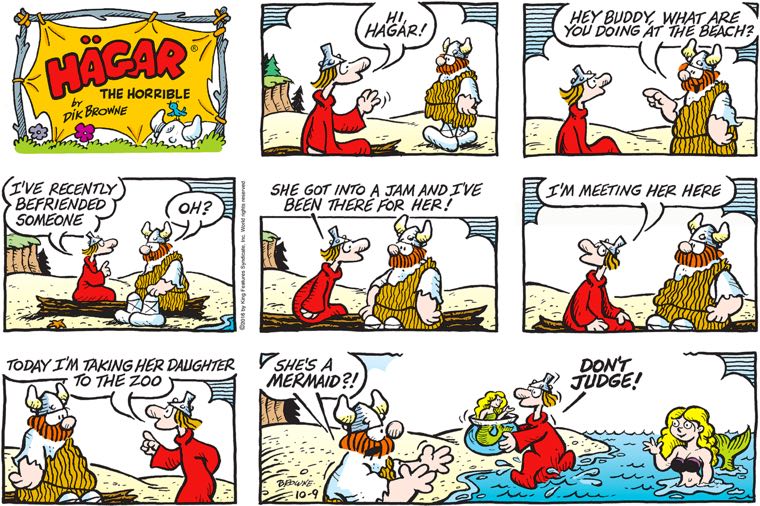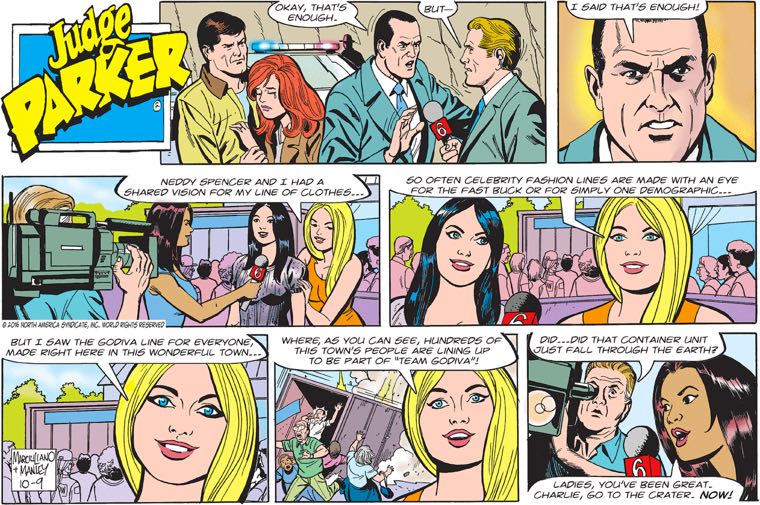WARNING: Spoilers for movies that are 19 and 36 years old found within this post
Post Content
Hagar the Horrible, 10/9/16

“Yes, Hagar, I found this mermaid tangled in a fisherman’s net, and yes, she promised me any price to free her. And so I took what was my due: her daughter, who I’m going to bring to the zoo to sell to the zookeeper. Don’t judge! I’m tired of the dangerous world of being a Viking. Do you know how many gold pieces I can make from selling her? Enough to never live in hunger or fear again! She said I could have anything if I freed her! Anything! I kept my end of the bargain!”
Judge Parker, 10/9/16

Years ago, I went on a date with a woman who picked the movie we would see: My Best Friend’s Wedding. The plot, if you’ve never seen it, involves Julia Roberts realizing she’s in love with her best friend, Dermot Mulroney, right as he’s about to marry Cameron Diaz, and she decides to sabotage their relationship. The date was unsuccessful, in part, because of our wildly differing reactions to the movie. She wanted Julia Roberts’ character to be more sympathetic, when in fact she becomes less so over the course of the movie. I, on the other hand, had fallen in love with the movie at a particular turning point, when everything I knew about conventional movie narratives taught me that Julia Roberts was about to confess the truth of her evil plotting to Dermot Mulroney and they would start growing closer; instead, she decides to double down on the madness. I thought about my dad describing to me the first time he saw the Stanley Kubrick version of The Shining; towards the climax of that movie, Scatman Crothers arrives at the Overlook Hotel to rescue the protagonist, only to be immediately murdered by Jack Nicholson. This doesn’t happen in the book, and my dad, who had read the book before seeing the movie, told me that when he saw this he thought, “Oh my God — anything could happen now.” That’s what I thought during My Best Friend’s Wedding (it’s the scene where Julia Roberts starts telling people Rupert Everett is her fiancé), and it’s a narrative high I’ve been chasing, and aspiring to in my own writing, ever since.
Anyway, there’s been a distinct shift in narrative tone in Judge Parker since Ces Marciuliano took over writing duties a few weeks ago, but I hadn’t experienced that feeling until now, looking at the next to last panel, when those shipping containers — containers Neddy browbeat her engineer/lover-to-be into using as the building blocks of her factory, then browbeat some poor sap into selling her below cost — collapsing in an awful ballet of twisted metal and, I hope, shattered bodies. Anything can happen now, you guys. Anything can happen.

